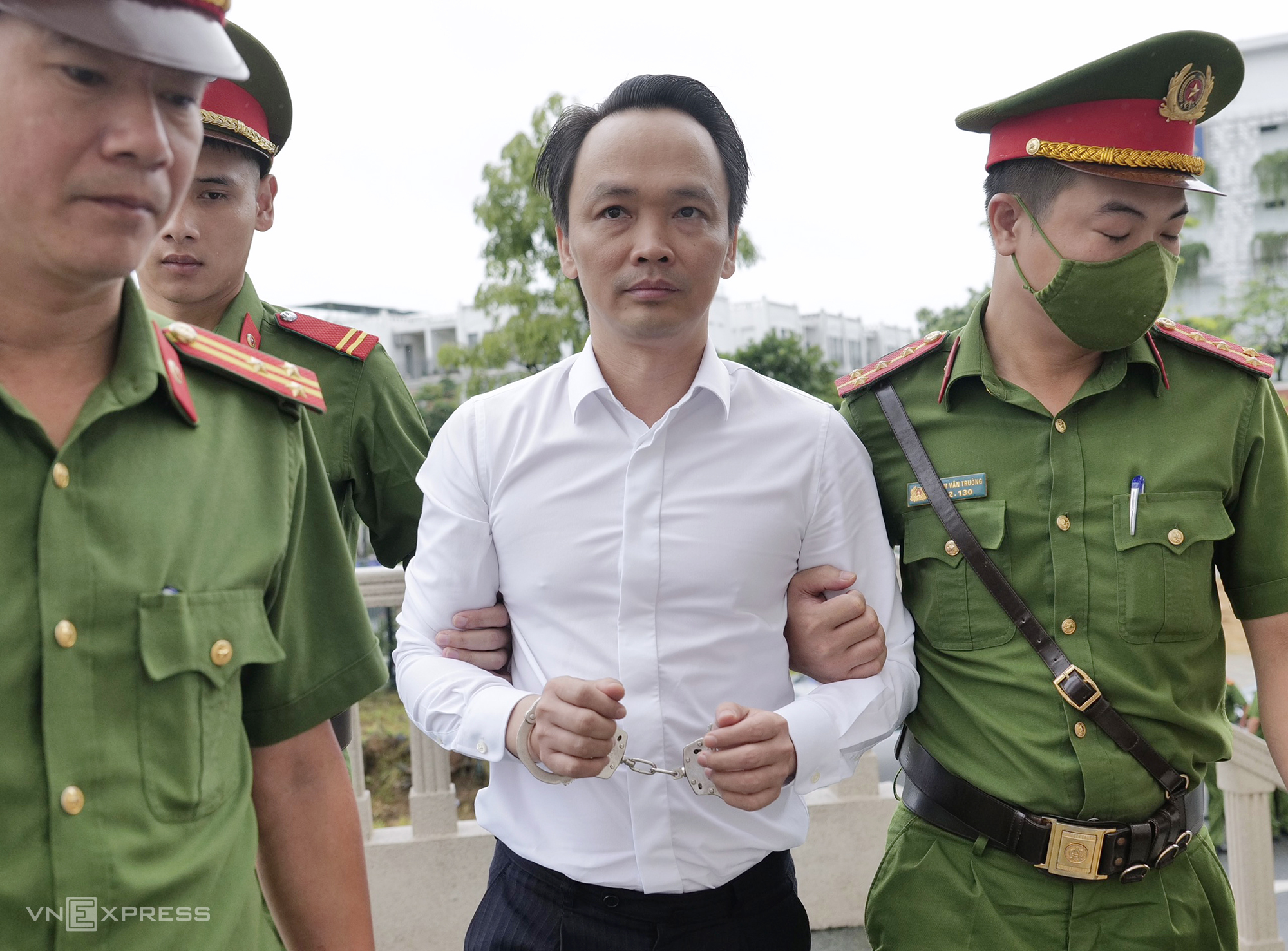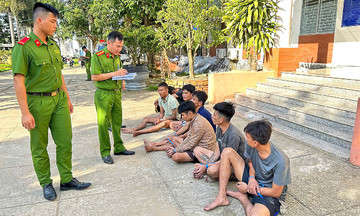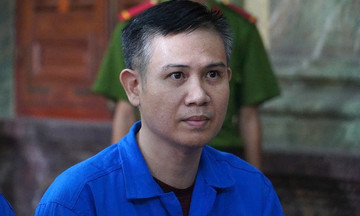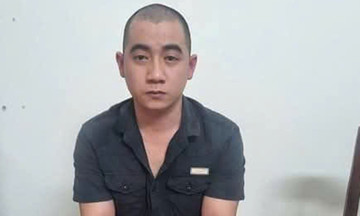The Hanoi Civil Judgment Enforcement Agency announced on 2/9 that after one month, they had received 11,000 execution requests from ROS shareholders in the case involving former FLC Chairman Trinh Van Quyet. Nearly 3,800 of these requests were incorrectly filled out and required resubmission.
After processing, the agency has disbursed payments to nearly 2,800 individuals. The remaining applications continue to be processed.
To expedite the process and minimize errors, the agency developed a dedicated application. All data from the verdict, including a detailed list of victims and related parties eligible for compensation, was uploaded.
Upon receiving an application, front desk staff input the request into the system, which displays the applicant's full name, case number, date of receipt, receiving officer, and the execution date. To prevent duplication or errors, five staff members input data, and five others cross-check it.
"Some anxious individuals submitted multiple applications simultaneously or within days of each other," a Hanoi Civil Judgment Enforcement officer explained. "Others submitted applications both by mail and in person. The application resolves these issues; entering the individual's case number displays all related information."
The agency established a processing team of 11 officials and a team of 19 enforcement officers, along with accountants, all "working at full capacity, including holidays and weekends." In the Tan Hoang Minh case, they processed 200 applications daily, taking three months to complete 6,000. However, in the FLC case, over 7,000 applications were handled in just over a month, with a peak of over 500 applications received on 25/7.
Enforcement officers found common errors in the applications, such as incorrect forms, incorrect transfer orders, missing or outdated identification cards, and incorrect bank account information.
For incomplete applications, officers contacted the applicants, even on weekends and holidays, to guide them through the corrections. "Many people cursed and accused us of fraud upon hearing our introduction," an enforcement officer said. "We had to calmly call back, explain the situation thoroughly, and assure them we weren't requesting sensitive information like OTPs or website links to gain their trust."
The agency expects to process and disburse payments for all valid applications by the end of September.
To ensure the rights of those entitled to compensation and avoid overcrowding, the Hanoi Civil Judgment Enforcement Agency encourages applicants to submit their documents by mail to their office at To Dan Pho 13 Nhan My, Tu Liem ward.
Required documents include an application for enforcement, a transfer request form, identification (a copy of a national ID card, citizen identification card, passport, or residency confirmation), bank account verification, and a power of attorney or authorization contract if applicable. If transferring funds to another person's account, appropriate authorization is required.
 |
Trinh Van Quyet at the first-instance trial, August 2024. Photo: Giang Huy |
Trinh Van Quyet at the first-instance trial, August 2024. Photo: Giang Huy
According to the case file, after five instances of fraudulent capital increases, Quyet's group listed 43 million ROS shares on the HoSE, selling initially to 25,853 victims and misappropriating 3,621 billion VND.
As of 5/9/2022, the date ROS was delisted from the HoSE, 63,075 investors (excluding the defendants) held over 567 million ROS shares. During the investigation and trial, over 27,881 investors filed for compensation.
However, the court determined that only 133 individuals holding ROS shares from the initial sale qualified as victims. The remaining 27,800+ individuals were classified as related parties with claims.
The 133 victims will receive 7,215 VND for each share they still hold. The 27,881 related parties will receive over 1,783 billion VND in compensation. The total compensation amount is nearly 1,786 billion VND.
According to the appellate judgment effective from 26/6, former FLC Chairman Trinh Van Quyet was sentenced to seven years in prison for fraud (down from 18 years in the first-instance trial) and a 4 billion VND fine for stock market manipulation (down from three years in the first-instance trial). Quyet has overcompensated for the damages by over 20 billion VND, having paid 1,886 billion VND to date.












